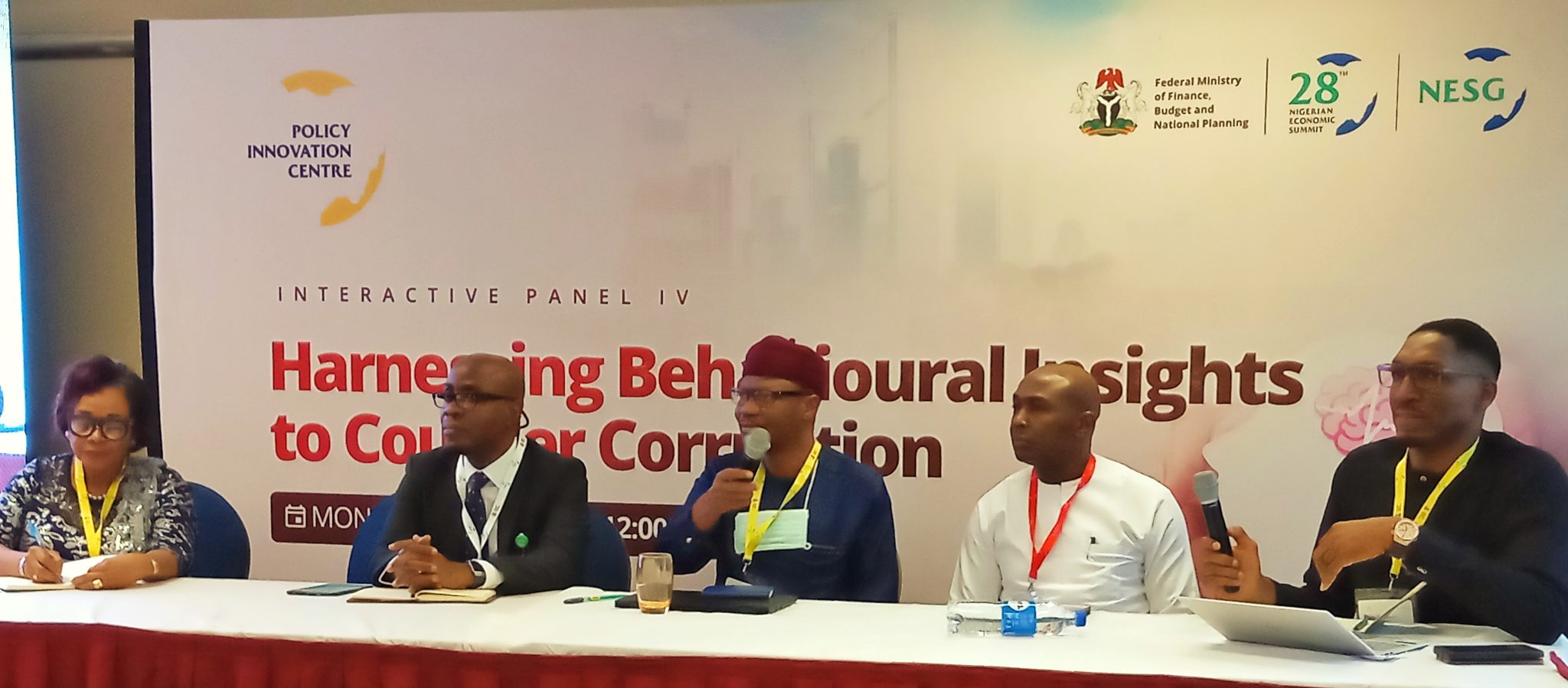
Stakeholders meeting at the 28th session of the Nigeria Economic Summit (NESG 22) have said that unless opportunities and practices driving corruption are tightened, it will continue to be endemic in Nigeria.
They made this known at a breakout session panel discussion on “Harnessing Behavioral Insights to Counter Corruption,” organized by the Policy Innovation Center (PIC), an initiative of the NESG.
The stakeholders who sought innovative and multifaceted solutions and way forward in tackling the menace of corruption in the fight against corruption resolved to adopt behavioural science in ensuring transparency and accountability in both private and public sectors in the country.
Board member, Independent Corrupt Practices and Other Related Offences Commission, (ICPC), Olubukola Balogun
pointed out the need to move from the criminal justice approach to harnessing behavioural change to tackle corruption.
She said corruption messages must be coined and channelled in such a way that it influences and changes the people’s mindset on corruption and corrupt practices.
“Government policies are going towards approaching the fight against corruption in other areas rather than law and order.”
“There are sanctions and systems studies, but everything has to be driven by the society because even if you have your sanctions and your systems, it is the society that will make the tools work.”
“So that is why we want to work on society with the help of our development partners.” “The government has approved the national ethics and integrity policy,” she said.
According to her, the ethics and integrity policy has seven main core values, which drive the advocacy for behavioural change in the fight against corruption.
“These values, we are taking round the country through meetings with traditional and religious leaders, youths and women groups round the six geopolitical zones and have gone to 21 states.
“We are advocating that we should all come back to the drawing board and get our values rights in society.
“All the behaviours that are illegal, let us leave them.” “It is for our common good so that we can have shared prosperity and we can all do it right and get it right,” she said.
Speaking on the importance of the session in garnering efforts towards quashing corruption, Deputy Director of PIC, Dr Osasiyi Dirisu, said it would enlighten both public and private stakeholders on the different dimensions of using behavioural science to address corrupt practices.
Dirisu said the three-year PIC Program, funded by the MacArthur Foundation to harness lessons from behavioural science and use them to work on improving accountability and transparency within different sectors in Nigeria, is key to tackling corruption.
“We sat down together with CSOs, NGOs, and Government MDAs and we supported them to begin to think differently about interventions that will work for accountability and transparency
“And we sat together to co-create what the solutions would look like and we went on to develop a four-faced cause training program on using behavioural insights to support accountability and transparency Programmes.
According to her, they trained organizations to think differently and helped them improve the effectiveness of the work they do.
“The next phase is to work with organizations to design solutions that they will go back to implement in the society using lessons from behavioural science that reflect on some of those solutions.”
“We will test them and see which ones work and begin to support best practices for accountability and transparency programs in Nigeria,” she said.
Dr Joe Abah, Country Director of DAI, said one of the major ingredients for corruption to thrive is opportunity, hence the need to constantly tighten the system and apply brutal sanctions that will discourage anyone thinking of getting into it.



